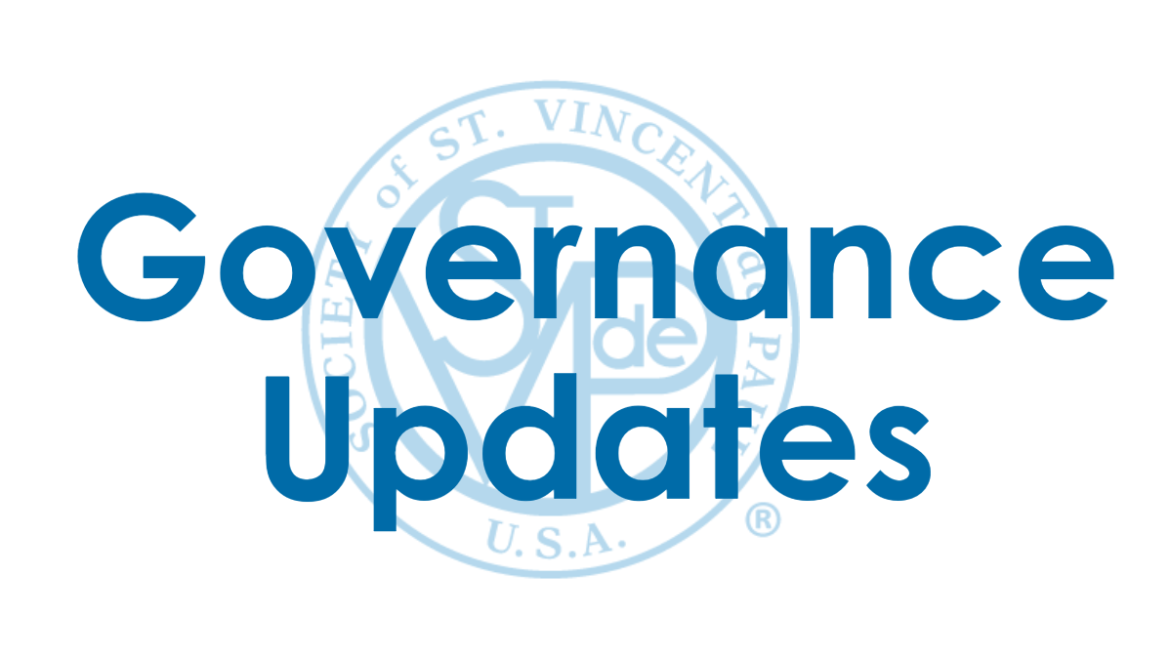Q: How do Council leaders report the hours they spent at a national meeting? Is it counted as 24 hours a day, 8-hours in a given day, or is it strictly based on the total number of hours actually present at meetings (including workshops, committee meetings, presentations, general session attendance, Masses attended, meals shared in a Vincentian group, etc.)?
A: It can be approached two ways. One, start with the first scheduled event for the day and run through the last event scheduled for the day. Sometimes this is 8 hours, sometimes 12. The second is to use the first method plus the time spent “on-your-own” if it is effectively in meetings with other Vincentians. 24 hours per day is unreasonable, but 8 hours average per day works also.
Q: Who actually casts a vote for the District Council President? Is it any conference member who is defined as fully active or just the members (Conference Presidents) of the District Council?
A: Formal voting is done at the District Council meeting designated for this process. However, many times the Conference Presidents bring the information about the candidates to their Conferences and ask the Conference members to vote. The Conference President then takes that vote to the District meeting and casts the vote on behalf of the Conference. If this is done, each Active (Full) Member has one vote, and it must be cast in person.
The voting members of the District Council are the Presidents of the Conferences in the District and the District Council President. Traditionally, the District Council President does not vote unless there is a tie. The only exception to this is when your District Council Bylaws do not correspond with the Nationally Approved Bylaws and your DC bylaws specify additional voting members.
P: ¿Cómo informan los líderes de los Consejos las horas que pasaron en una reunión Nacional? ¿Se cuenta como 24 horas al día, 8 horas en un día determinado o se basa estrictamente en el número total de horas realmente presentes en las reuniones (incluidos talleres, reuniones de comités, presentaciones, asistencia a sesiones generales, comidas a las que se asistió, a las misas compartidas en un grupo Vicentino, etc.)?
R: Se puede abordar de dos maneras. Uno, comience con el primer evento programado para el día y repase el último evento programado para el día. A veces son 8 horas, a veces 12. La segunda es usar el primer método más el tiempo empleado en el tiempo “por cuenta propia” si es efectivamente en reuniones con otros Vicentinos. 24 horas al día no es razonable, pero un promedio de 8 horas por día también funciona.
P: ¿Quién vota realmente por el Presidente del Consejo de Distrito? ¿Es un miembro de la Sociedad que se define como plenamente activo o solo los miembros (Presidentes de las Conferencias) del Consejo de Distrito?
R: La votación formal se realiza en la reunión del Consejo de Distrito designada para este proceso. Sin embargo, muchas veces los Presidentes de las Conferencias proporcionan información sobre los candidatos a sus Conferencias y piden a los miembros de la Conferencia que voten. Luego, el Presidente de la Conferencia lleva ese voto a la reunión del Distrito y emite el voto de la Conferencia. Si esto se hace, cada Miembro Activo (Pleno) tiene un voto y debe ser emitido en persona.
Los miembros con derecho a voto del Consejo de Distrito son los Presidentes de las Conferencias del Distrito y el Presidente del Consejo de Distrito. Tradicionalmente, el Presidente del Consejo de Distrito no vota a menos que haya un empate. La única excepción a esto es cuando los Estatutos de su Consejo de Distrito no corresponden con los Estatutos Aprobados a Nivel Nacional y esos Estatutos del Consejo de Distrito especifican a miembros votantes adicionales.


